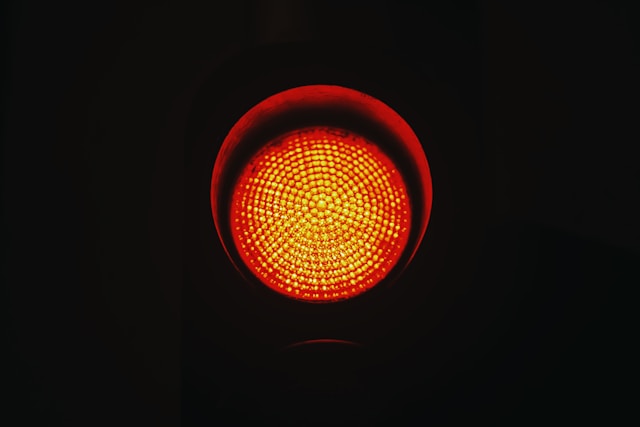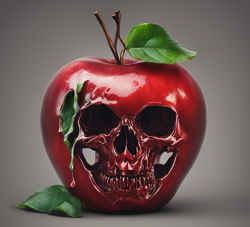Sloshing around in my brain over the last several months has been the notion that science, especially medical science as it is currently contrived, is suffering from a great crisis of responsibility. We see the lack of responsibility over and over again in the all-too-frequent, multi-billion dollar settlements and fines against pharmaceutical and medical device manufacturers. Neither the injury settlements nor the fines admit culpability; not from the scientists who developed the drug, not from the manufacturer, the salesmen, the ad men, or anyone along the production chain. We see no culpability from regulatory agencies who approve and, in many cases, market these medications. Neither the physicians who prescribe these medications nor the insurers who finance their availability are responsible either. No one, it seems, is ever responsible for medication-induced injuries or illnesses; a manifestation of magical thinking that makes the dark ages appear positively rational.
In financial terms, these settlements represent the cost of doing business, no more or less important than any other cost. Since there is no admission or assignment of responsibility, the drug or device in question remains on the market and the cycle of injury, lawsuit, and settlement begins anew. If enough time passes, the treatment in question becomes inured into evidence-based medical practices. The side effects are expected but disregarded. In much the same way as the settlements disregard responsibility, the side effects are simply the cost of doing business, an acceptable cost at that.
Bathed in the Safety of the Familiar
Indeed, the more familiar a drug becomes, the less we recognize that it is a medication at all. Think birth control pills, NSAIDs, and even antibiotics, so pervasively used, we often forget these are medications with actual side effects. Our familiarity with these drugs breeds a false sense of safety. We trust all that is known about these drugs is all that can be known. We assume that after 20, 30, 40 years or more on the market there would be sufficient time to reveal any risks. We forget, however, that more often not, we never bothered looking.
That is the thing about familiarity, it breeds complacency and a false sense of understanding. As Ignaas Devisch and Stuart Murray write in their brilliant deconstruction of evidence-based medical practice:
There is something sinister about familiar concepts … The more familiar or ‘natural’ they appear, the less we wonder what they mean; but because they are widespread and well-known, we tend to act as if we know what we mean when we use them.
With familiarity, it is easy to abdicate responsibility. We are familiar with medications, and therefore, the side effects must be flukes, anomalies, chance events. How can anyone be responsible for a chance event?
They cannot.
And that is the problem.
Somewhere, somehow, we have bought into this model of medicine where familiarity equals safety and efficacy, where ill-health comes by chance, and any evidence to the contrary is met with a deeply ingrained and willfully sustained ignorance. We find the roots of this sinister familiarity across all of medicine. We think we know what disease is and is not. We have meticulously defined and categorized hundreds, if not thousands of diseases, save except the iatrogenic illnesses that we are loathe to recognize. We have defined gold standards by which to assemble the truths about these diseases and determine the best courses of action. We know all there is to know about many of them, and what we don’t know, we often willfully dismiss as unimportant or cleverly attribute to the idiopathy of random chance.
The Rise of Random Events
We see evidence of this everywhere. Take, for example, the certainty propounded by the authors in a recent study published in the esteemed journal Science (below). Cancer is a familiar topic, one that researchers have been studying for decades, and although we have made great strides in increasing awareness about cancer, identifying it early (before it is actually cancer and requires treatment in fact) and even some progress in surviving cancer (though that is debatable), we know almost nothing about preventing it. Our increasing familiarity with this disease process has bred a sinister type of ignorance – one that thinks it knows all that can be known; an ignorance completely unaware of its own limitations. According to the study’s authors, what we don’t know can be chalked up to random chance.
Some tissue types give rise to human cancers millions of times more often than other tissue types. Although this has been recognized for more than a century, it has never been explained. Here, we show that the lifetime risk of cancers of many different types is strongly correlated (0.81) with the total number of divisions of the normal self-renewing cells maintaining that tissue’s homeostasis. These results suggest that only a third of the variation in cancer risk among tissues is attributable to environmental factors or inherited predispositions. The majority is due to ‘bad luck’, that is, random mutations arising during DNA replication in normal, noncancerous stem cells. This is important not only for understanding the disease but also for designing strategies to limit the mortality it causes.
Here, the researchers are so entrenched in the current and very familiar paradigm of cancer research, that any evidence to the contrary can mean only that the nature of this disease process is incomprehensible or random.
To an outsider, some obvious questions arise, along with more than a little indignation and disbelief. Upon reading their work my thoughts:
Really? Cancer is caused by random chance? And the rise in the rate of cancer over the last generations is random chance also? It has nothing to do with the toxic soup we are born from, bathed in, and live within, breathe, and consume? It has nothing to do with medications or vaccines adducting to DNA, limiting DNA repair, and/or totally dismantling mitochondrial structure and functioning? Cancer has nothing to do with the medication and toxicant-induced epigenetic damage or nothing to do with a lifetime of heavily processed, calorie-rich, nutrient-poor, food-like substances? Nothing to do with any of that? Just random chance?
Fealty to the Shrine of Our Hubris
I have to say, attributing cancer to random chance is one of the most stunning combinations of godlike hubris and willful ignorance that I have ever observed. Equating cancer or anything else in medicine to random chance assumes that all appropriate questions have been asked and answered, all of them, every last one of them. It assumes that those asking the questions and the tools employed to find those answers are flawless and hold no biases. It assumes that everything that can be known is already known; that the science is settled in some way, and that all we can do, as mere humans, is to figure out how to mitigate the aftereffects. I don’t know about you, but I think this is an absolute load of crap.
If cancer or any other disease processes are caused by random chance, then we have no responsibility in either the initiation or prevention of disease; no personal responsibility for the lifestyle choices we make, no corporate responsibility for the myriad of common medications that are likely carcinogenic or the environmental chemicals that are known carcinogens. If cancer is mostly random, then we have no impetus to identify and then eliminate the root causes of cancer. The only impetus is to detect early and treat once recognized.
Define cancer as random, define drug side effects as random, define any illness as random, and we summarily abdicate all responsibility for that illness and foreclose the possibility of prevention. Worse yet, we foreclose upon knowledge in favor of a fantastical state of willful ignorance, where no one is responsible for anything.
Absolution: Is That Really What We Want From Our Physicians?
The lack of responsibility and human agency in health and disease absolves us from making difficult choices – smoke, drink, eat garbage – it doesn’t matter. Disease happens randomly. It is beyond our control. We might as well live it up.
Oh, but when it does happen when we are randomly struck by the disease gods, no worries, there are more pills for that, familiar pills, many that have been in use for decades; so familiar that their safety and efficacy are not questioned.
When those pills initiate side effects, even severe ones that cause death, well, because we have abdicated all responsibility, those side effects too must be seen as random and unattributable to any one person, medication, or institution. And this is where our previous trust in the randomness of disease inevitably kicks us in the butt. When side effects happen, when cancer strikes, and especially when these events happen in clusters where obvious associations between a drug or an environmental toxicant and the disease emerge, we want someone to be held accountable.
The problem is when we abdicate responsibility for our own choices, when we fall prey to the unquestioning safety of the familiar, and when we buy into the random events theory of disease, there can be no culpability – even from those who are clearly responsible.
Kick and scream as we might, unless everyone assumes at least a modicum of responsibility, no one is truly responsible for anything. Encouraging ignorance and freedom from responsibility – don’t worry, be happy – is a great sales strategy and an even better method to garner political and ideological power, but it does not bode well for health and well-being (or really anything that has to abide by laws of physics). And it is certainly not a model for medicine or medical science.
We Need Your Help
More people than ever are reading Hormones Matter, a testament to the need for independent voices in health and medicine. We are not funded and accept limited advertising. Unlike many health sites, we don’t force you to purchase a subscription. We believe health information should be open to all. If you read Hormones Matter, like it, please help support it. Contribute now.
Yes, I would like to support Hormones Matter.
Photo by Paulette Vautour on Unsplash.
The article was published originally on Hormones Matter on October 7, 2015.















This researcher says many things wrong in society have to do with the male mind. He explains @TheEmptyChairMind. I sent him a link to Dr Lonsdales work.
This post is excellent and typical Marrs! I am in total agreement and, as a physician myself, the reason that I broke away from orthodox medicine, with which I am ashamed. As many HM readers know, I have suggested that a new medical model is needed, Genetics; Stress: Nutrition, represented as 3 interlocking circles (Boolean Algebra). It is useless to complain about the functions of a profession unless a positive change in philosophy is suggested. I have several books advertised on Amazon books and I share the authorship of one with Dr Marrs. They all deal with the important philosophy of causation in disease, that might be summarized with one word——–energy!
The externalities of doing business in America are the maimed, destroyed, vegetative and dead. Look at any sector, Chandler, and we get the same BS of “it’s our fault, user error, not the faulty of the corporation, be it medicine, pharmaceutical, automobile, construction, agriculture, food, energy, et al.
Externalities. Don’t recall those exploding gas tanks in pick-ups – millions of trucks. Just pay out the random million lawsuit here and million there for deaths and third degree burns when an accident takes place.
Who pays for the tobacco and nicotine drug delivery industry? We have paid billions for emphysema, lung cancer and other debilities caused by this science-made and science-approved drug.
The list goes on and on, these externalities.
The food industry knows that sugar, far and salt go right to the brain, to those receptors in the gut that ask for more, more, more. We know that cheese has many elements that ask for more, more, more:
Quoting: Cheese happens to be especially addictive because of an ingredient called casein, a protein found in all milk products. During digestion, casein releases opiates called casomorphins.
“[Casomorphins] really play with the dopamine receptors and trigger that addictive element,” registered dietitian Cameron Wellssaid.
http://www.latimes.com/food/dailydish/la-dd-cheese-addictive-drugs-20151022-story.html
https://www.ncbi.nlm.nih.gov/pubmed/25692302
So what is a Burger King or Wendy’s — beef, fat, cheese, salt and sugar! Hmm, whose science is it for?
This idea that the stuff that swirls around and embeds in the water, drinks, foods, air and soil AND meds we put into our bodies plays little role in the growth of cancer is absurd, and it’s a narrative created by Industrial Western Medicine and the Purveyors of Profit to make more and more toxins and chemicals and products to advance that profit motive at all costs.
Except when it comes to damages, harm, and the wreckage – think of the Super Fund Site to End All Super Funds, Hanford, here where I live, along the Columbia River. We are paying billions for the nuclear industry, for the arms industry. Externalities. Taxpayer pays (socialism) and the industries keep the profits (Capitalism).
https://lucian.uchicago.edu/blogs/atomicage/files/2013/10/SpokaneCDA98pg40_441.pdf
https://dissidentvoice.org/2013/10/nuclear-narratives-when-cold-war-starts-the-hot-milk-gets-poured/
Ahh, those externalities, from Thalidomide babies, to Vioxx deaths. All those chemicals the average citizen DID NOT ask for. We are addicted to these modern better living through chemistry-oil-computing products churned out by the modern system of industrial pain.
However, capitalism is the engine for this disaster, and the common citizen is bombarded with debt, more debt, rotten jobs, a hollowing out of education, media mush, and, well, the lack of participatory democracy largely because the special interests and the lobbies and Point One Percent control the message and control the legislation. We are not green lighting all these dangerous and questionable products and services. The system of Capitalism is rapacious and impossible to penetrate one product by one product.
Externalities: Remember the largest crime in the oil spill industry, the Gulf Coast oil spill?
http://www.spokesman.com/stories/2011/jun/12/gumbo-gumption-and-gulf-coast-blues-revisited/
http://www.spokesman.com/stories/2011/jul/31/rise-sustainability-force-critique-celebrate-and-c/
The price of British Petroleum polluting the Gulf Coast, using Corexit, another toxic dispersant, on millions of gallons of oil, fouling air, water, the entire food web. This BP is still in business and profits are soaring.
Those externalities are socialized – corporations love socialism when it comes to the taxpayer paying for their known mistakes, their know consequences and those few unintended consequences. Imagine, Fortune 1000 companies loving socialism when it comes to we the people collectively paying for their crimes, their misdeeds, their costs of doing business (pollution, mountain top removal, toxic harvests, etc.).
All the externalities we pay for with four-year universities and community colleges (taxpayer funded by the trillions) teaching people those skills the businesses, including the STEM types, need to carry on their Ayn Rand privatizing the profits.
So, interestingly, David Suzuki, on my radio show a long time ago, stated that in Vancouver, BC, parents were rushing their kids to the ER for asthma attacks due to high levels of air pollution (ground-level ozone) and exacerbated by the cars-cars-cars and warm summer. Here they are, in SUV’s, idling outside hospitals, taking their loved ones to the ER for respiratory illnesses. All those single occupancy trips here and there, and the people, citizens, couldn’t put two and two together.
http://www.tayenlane.com/reimagining-sanity
However, let’s make it clear that it’s not us – global citizens – who are making climate change this engine of destruction. It’s Capitalism.
Environmental author and activist Naomi Klein doesn’t fly much these days on principle, but she’s come to Australia for the first time in 14 years because now is a crucial moment for climate change.
The weird thing is that Klein and the prime minister, Tony Abbott, are in complete agreement on one fundamental thing: both believe that seriously tackling climate change is incompatible with capitalism as we know it.
Of course, Klein starts with that and goes on to argue that our economic system must be upended if we are to have any chance to save the planet from the worst impacts of climate change. Abbott makes clear that he will protect the way things are at almost any cost.
Yet their starting point is the same: you can have perpetual economic growth, with all that goes with it, or you can have an approach to climate change that treats it as the most serious issue the planet faces, but you can’t have both.
https://www.theguardian.com/commentisfree/2015/sep/03/tony-abbott-and-naomi-klein-agree-we-cant-beat-climate-change-under-capitalism
So, Chandler, we agree about systems thinking and about holism and about the food-economic-environmental webs – we have to fight the purveyors of capital and profits. How can medicine be a profit (huge, gross and obscene billions made yearly) and also for-by-because of the people?
Again, one story paints a thousand stories, in every Capitalist venture. Take the EpiPen for example.
Quoting: In a settlement announced Friday, Mylan, Inc., the maker of EpiPens, will shell out $465 million to the US Department of Justice and other federal agencies to brush aside any questions about its Medicaid rebates.
In the meantime, Mylan hiked the price of the life-saving devices on 15 separate occasions, reaching an increase of more than 500 percent. An EpiPen two-pack now goes for more than $600, while a nearly identical single pen was around just $50 in 2007. The steep rise in price has drawn outrage and scorn from the public and lawmakers.
Heather Bresch, chief executive officer of Mylan, is making more than $20 million a year –
https://www.nbcnews.com/business/consumer/mylan-execs-gave-themselves-raises-they-hiked-epipen-
prices-n636591
Think about this – the EpiPen is used more and more for the youth and adults facing anaphylaxis shock due to all the allergies — corn, dairy, soy, wheat, fish, legumes, nuts, eggs, just to name the top ones. And, how are these children now created? We going to blame what, for all the young kiddos that face a life of food allergies? Genetics? Too much antibacterial soap? TV? Pokémon?
Many attribute the allergies I witness personally as an emergency substitute PK12 teacher, to what? The vaccinations? The number of antibiotics? What in god’s name?
Evidence-based science and smart medicine are not the end all of discourse, thought and research. When you wed profits to, oh, say education, then you get Trump University and University of Phoenix, and we know how well those two purveyors of profit are working out. Wed profit to medicine, and we get absurdities in medicine –
Quoting Ralph Nader:
The latest in this medical cost saga comes from new data released last week by National Nurses United (NNU), the nation’s largest nurse’s organization. In a news release, NNU revealed that fourteen hospitals in the United States are charging more than ten times their costs for treatment. Specifically, for every $100 one of these hospitals spends, the charge on the corresponding bill is nearly $1,200.
NNU’s key findings note that the top 100 most expensive U.S. hospitals have “a charge to cost ratio of 765 percent and higher — more than double the national average of 331 percent.” They found that despite the enactment of “Obamacare” — the Affordable Care Act — overall hospital charges experienced their largest increase in 16 years. For-profit hospitals continue to be the worst offenders with average charges of 503 percent of their costs compared to publically-run hospitals (“…including federal, state, county, city, or district operated hospitals, with public budgets and boards that meet in public…”) which show more restraint in pricing. The average charge ratios for these hospitals are 235 percent of their costs.
https://www.huffingtonpost.com/ralph-nader/medical-price-gouging_b_4589748.html
And quoting Nader again:
Why do we put up with “pay or die” drug prices? Why do we tolerate our fellow Americans dying in the tens of thousands each year because they cannot afford health insurance to get diagnosed and treated in time?
Do we know that the profiteering drug companies regularly are given a slew of handouts, including huge tax breaks, free drugs developed by our National Institutes of Health, and few restraints on their high pressure sales of dangerous and addictive drugs (eg opioids) or, together with their corporate middlemen, return the favor by charging Americans the highest prices in the world? Other countries put limits on such blatant greed and exploitation.
Groping for ever more profits, the big drug companies offshore production to less regulated labs in China and India, which amount to 60% of the drugs we buy and 80% of the active ingredients in all medicines sold in the US. Unpatriotic in the extreme!
Compounding these inhumane practices is a supine Congress, with few exceptions like Rep. Lloyd Doggett (D, TX), and state legislatures, misusing the power we entrusted to them. These legislators see large pharmaceutical companies as honey pots for campaign cash that work as hush money paid by hordes of drug industry lobbyists. So craven was the majority in Congress in 2003 that, when the drug benefits bill was passed, it prohibited Medicare from negotiating volume discounts for this lucrative corporate sales bonanza (Past Congresses authorized the Pentagon and Veterans Administration to bargain and they get lower prices as a result).
https://dissidentvoice.org/2017/05/end-the-greedy-silence/
Keep up the good work and skepticism and deep understanding of how this all works together, Chandler. Brava!
You’d have a point, if we actually had capitalism. It’s ‘corporatism’, crony-capitalism, nepotism, socialised losses and privatised gains, monopolies…
Whatever it is, it’s not Capitalism.
This is a very impressive, well thought out, logical, critic. Dr’s have abandoned informed consent, the lies are neck deep and people learn to mistrust the toxic system and take more personal responsibility.
I am going to post this article to over a 100 FB pages today; that will most certainly nod in approval Dr. Marrs. In the event that you have not yet discovered her work:
http://highintensityhealth.com/kelly-brogan-md-why-antidepressants-are-no-better-than-sugar-pills-not-worth-the-side-effects/?utm_source=Kelly+Brogan+MD+Newsletter&utm_campaign=d22f3ef6d6-Upcoming+Live+Q%26A&utm_medium=email&utm_term=0_d0f977a8c5-d22f3ef6d6-122011057
#131: Kelly Brogan, MD – The Paleo Diet and Depression. Do Antidepressants Even Work?
Thank you for your kind words. And yes, I know Kelly. She’s brilliant.
Dr. Marrs always blows my mind the way she “puts it all out there” when, yes it should be. Being a victim of permanent disability from a drug, I have very little faith in Big Pharma or the Medical Est. Period. What happened to responsibility, compassion, and the desire to learn more than what is right in front of us, shouting, “Here I am, I am the reason for this illness.”? How often does that really happen and if it does, are we missing it? I have been harmed and consequently diagnosed with the popular disease nobody wants to deal with, and yet the popular drugs, therapies, etc. that are the “answer” for my disease have not worked too well for me, some not at all. Interesting!
Dr. Lonsdale often cites how many of most physicians will – pretty quickly – tell patients complaining about adverse reactions that the symptoms are “all in your head.”
The article you cited — from sciencemag.org — did not say that cancer is all by random chance. It said that “a THIRD of the variation in cancer risk among tissues is attributable to environmental factors or inherited predispositions.” That’s a lot! I cannot understand why you find this so hard to believe. I find it quite plausible. Often, people with perfect health habits are struck down with cancer; people with terrible health habits remain immune. A lot of this is just dumb luck. But not all of it. Let’s take care of that 1/3rd, and not sweat the rest.
It seems to me adherring to “informed” and “consent” would alleviate many of these issues. Yes physician and medical personnel, you do have an ethical and moral responsibility